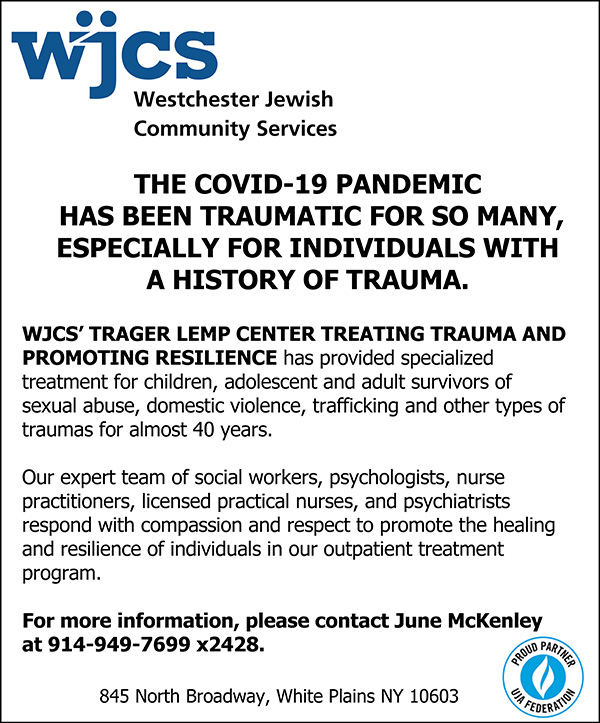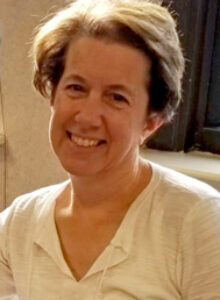Melissa is in her early 30s and moved back into her parents’ home six months ago when her father was diagnosed with terminal cancer. She and her mother and brother have taken on the loving and overwhelming task of caring for her father through to the end of his life at home. Melissa was building her career and chose to suddenly stop working in order to be at home and provide care. The family understood from the beginning that her father’s prognosis was poor, but nobody expected the decline to be quite as precipitous. They have brought in some home health aides but cannot afford full-time care. Melissa previously had an active life, with her partner, her work, and her hobbies. Now she finds herself increasingly isolated and depressed at a time when she knows she needs the emotional support of others.

Kay and her husband, Jerry, are both 80-years-old and have been married for 58 years. Jerry was diagnosed with Alzheimer’s disease several years ago. His memory is extremely poor, and he needs increasing assistance with many day-to-day tasks. Kay finds herself feeling very overwhelmed and wishes she did not get so testy with him when he repeats himself or cannot remember something from the recent past. Jerry reportedly did “everything” around the house and Kay admits that she withdrew money from the ATM, pumped her own gas and paid some bills all for the first time recently. She describes bearing witness to her husband’s cognitive decline as brutal.
As Rosalynn Carter, former First Lady and founder of the Rosalynn Carter Institute for Caregivers, has said, “there are only four types of people in the world: those who have been caregivers, who are caregivers, who will be caregivers, and who will need caregivers.” The prevalence of family caregiving is borne out in the statistics. According to the 2020 Caregiving in the U.S. report, published by the National Alliance for Caregiving and the AARP Public Policy Institute, 53 million Americans are providing unpaid care for relatives and friends. Most of those caregivers (41.8 million) are looking after parents or partners, age 50 or older. The New York State Department of Health has estimated that in New York State alone about 1 in 5 adults provide in total 2.68 billion hours of unpaid care.
At the Westchester Jewish Community Services (WJCS) Pathways to Care Program, we provide individual and group support to family caregivers. The need for emotional and practical support is critical. In 2021, the Centers for Disease Control and Prevention (CDC) reported that, among over 10,000 U.S. adults surveyed during the pandemic, parents, unpaid caregivers of adults, and parent-caregivers had significantly worse mental health than adults not in these roles. Caregiving can be relentless and managing your own time when you are also providing care to someone else is challenging. Melissa used to exercise regularly and now feels as though she has no time to go to the gym. She is sleep deprived and finds it hard to make time for herself.
Family caregivers often remark, with equal parts humor and exasperation, about the varied roles they take on. One spouse “joked” that, after her many years of caring for her chronically ill husband–taking him to appointments, advocating for him during a hospital stay, or providing hands-on care at home–she was a doctor without ever having gone to medical school. Melissa has learned how to care for her father’s wounds and Kay has taken on brand new financial responsibilities. The to-do list grows, and the physical toll of caregiving can leave caregivers feeling stressed and overwhelmed.
The financial strain of caregiving is real. Kay’s husband, Jerry, has been showing signs of his dementia for many years and the cost of paying for a home health aide and his twice weekly adult day health program adds up. And the uncertainty that comes along with many diagnoses, especially Alzheimer’s, can be unsettling. Jerry’s doctors cannot predict the precise trajectory of his disease and Kay understands she may be “in it” for the long haul.
Caring for a family member can be an isolating experience. Clients often describe feeling lonely, unable to find time to care for themselves, and fearful of asking for help. The realization that one needs assistance can often be an “aha” moment. One caregiver talks about his wife with advanced dementia. For a couple of years his adult children begged him to hire aides and find support for himself. He ignored their suggestions stating that he was a one-man show. He eventually recognized that it does “take a village” and reached out for support.
The tips we provide family caregivers at the WJCS Pathways to Care Program are focused on helping them manage stress and stay healthy. We provide and direct clients to where they can gather information about their loved one’s condition. Becoming educated and knowing how to tap into community resources are helpful from a practical perspective and empowering from an emotional one. Kay reached out early to the Alzheimer’s Association and researched grants that could assist in paying for some homecare. Melissa and her family have shared what they are going through with friends and neighbors, all of whom have been remarkably generous with providing food and respite to the family.
We encourage caregivers to learn how to be an advocate for their loved ones and for themselves. Knowing how to ask for help when you need it is essential. Support groups provide caregivers with a sense of empowerment and improve coping skills. One caregiver reminded others in a group that she believes she can take care of her husband only “from a place of strength” and tries to get that strength from doing at least one small thing for herself daily.
Participants often develop a clearer understanding of what to expect from the progression of a particular condition or disease. Perhaps, most important, a support group can give caregivers reassurance that they are not alone. Kay has participated in a support group and describes the benefits of speaking with others who “get it.”
Despite the many challenges, caregivers can often tap into some of the rewards, such as a deepening bond with their loved one, increased empathy, and a sense of purpose. As Rosalynn Carter states, “caregiving is hard, even on the good days when it brings joy and fulfillment. It requires dedication, determination, and time.”
Sarah A Lieberman, LMSW, has supported family caregivers in her work as a social worker for close to three decades, with the past eight years working at Westchester Jewish Community Services in the Pathways to Care program. She can be reached at slieberman@wjcs.com or 914-761-0600 x2141.






As an adult, I decided I wanted to become educated in the studies
of gerontology so I could help the seasoned population, as well as their caregivers who are what I like to refer to as the “rarely noticed sufferers” in a rather large equation of care. Through this educational journey, I became a caregiver to a family member who almost was forgotten. Needless-to-say, I had no idea what I was in for. After 10 years of caregiving, my loved one died of COVID in a Bronx nursing home at the beginning of the pandemic. The complexities of this world crisis, of which we are still feeling the residual affects of in January of 2023, only tells me how desperately we all need self-care and compassion for others. I don’t know where my new journey starts, but I am so grateful for publications like BHN for bringing this and many other critical issues to light, in order to assist local communities. Thank you for all you do.